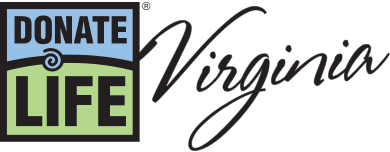Navy vet on a mission to promote kidney health
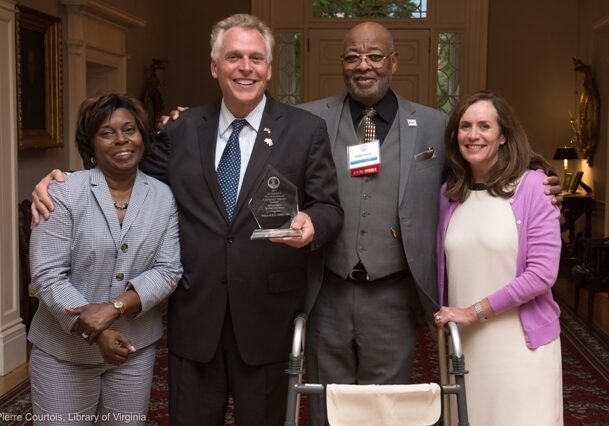
For Wallace Green, prevention would have made all the difference.
“I had kidney disease at a very young age and of course, I wasn’t aware of it,” said Wallace, now 64 and a two-time kidney recipient. “It wasn’t until my kidneys started to fail that I knew there was a problem.”
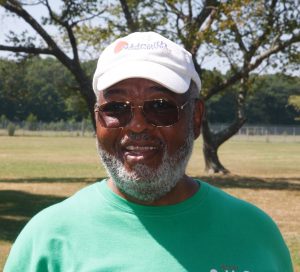
Wallace Green
In his retirement, the Virginia Beach Navy veteran is dedicating his time to teaching others about kidney disease and how to prevent it.
His efforts have already earned him the 2017 Governor’s Volunteerism and Community Service Award and he’s continuing his work with the upcoming Kidney Bowl, to raise awareness among the area’s low-income residents.
“A lot of people just don’t know what to ask their doctor,” he said. “I was in the military, I played sports and I was getting physicals all the time. And each time I went to a doctor, they’d say my kidneys were ‘okay’ or ‘in normal range’ and I never thought to ask what that meant.”
“It wasn’t until my kidneys started to fail that I knew there was a problem.”
But even in his 20s, Wallace’s kidneys had started failing.
It just wasn’t until 30 years later, after he was on dialysis, that he started to do the research and realized his medical records showed an ever-worsening problem.
Headed toward the brink
The problem, Wallace said, is that your kidneys are still “okay” or “in normal range,” if you’re in Stages 1-4 of kidney failure. But if your kidneys are “okay” because they’re only in Stage 1 kidney failure, and the following year they’re “okay” because they’re only in Stage 2 kidney failure, and the following year they’re “okay” in Stage 3 kidney failure, there’s a catastrophic problem on the horizon.
“A lot of people just don’t know what to ask their doctor.”
“Even then, it was still preventable,” he said. “And there weren’t any symptoms. But the lab results show you there’s a problem, if you know what you’re looking for and what to ask.”
Risk factors
Wallace said one of the things he’d hadn’t known was that he was born at a high risk for kidney disease.
“Diabetes, hypertension, obesity, gout and kidney stones are the big risk factors,” he said. “I didn’t have those risk factor but my parents did. I should have had screenings – I could have very well kept my kidneys from failing.”
It was another thing he hadn’t known to ask about until it was too late, Wallace said.
“When I was coming up, someone would pass and you’d never know what they died from,” he said. “We didn’t talk about it and you didn’t ask questions of your elders. Even cancer was just called ‘the big C.’ You didn’t ask your parents about their health conditions and you didn’t ask what anyone had died from.”
So he hadn’t known that his mother was a diabetic and that his father had hypertension – both factors that made Wallace high-risk for kidney disease, as did being an African-American.
Plenty of time to read
If he had known, Wallace said, he could have been more careful with his weight, his diet and his medications – all things that would have helped keep his kidneys healthy.
Instead, he wound up in kidney failure and spent eight years on dialysis before undergoing two kidney transplants.
“I could have very well kept my kidneys from failing.”
“Dialysis in the center is a four-hour visit three days a week,” he said. “You are drained after four hours of treatment and you’re too exhausted to do anything.”
A lot of people just watch tv because they’re too tired to do anything active, Wallace said, but he started reading instead – anything and everything he could find related to kidney disease. He did research, obtained his old medical records and realized there was a clear trend over time.
“The signs and symptoms pretty much come only when your kidneys have failed but the lab tests show it,” he said.
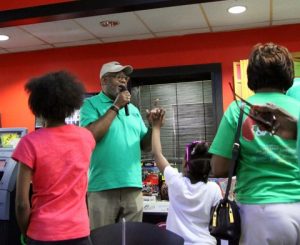
Wallace Green at the 2016 Kidney Bowl
Spreading the message
In 2006, he got his first kidney transplant and his second came in 2015. And once he realized what people need to know, he hit the road to spread the word about prevention.
“I support the big organizations like the National Kidney Foundation because finding a cure and doing research is very important but what I focus on is what happens prior to that,” he said.
Wallace started his own 501(c)(3) to raise awareness about risk factors and prevention.
For anyone with risk factors, he said, the most important thing is to talk to a dietician or nutritionist.
“But take your lab results with you because the dietician can point out areas of concern,” he added.
Wallace spends most of his time now at health fairs and events for seniors and veterans. Last year he spent 400 hours talking to more than 7,000 people about preventing kidney disease.
But he noticed that low-income people don’t generally attend health fairs so he’s also working with local churches and faith-based groups to reach more people.
Kidney Bowl
He also teamed up with a bowling alley – AMF Norfolk Lanes – to host a “Kidney Bowl” each year where participants can bowl, win prizes, and learn about kidney health.
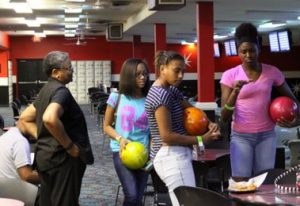
2016 Kidney Bowl
“We sign up low-income families through the services they use, like Horizons (an enrichment program for low-income children). Anyone who comes in through one of those programs can bowl for free. It’s good because it’s a way to get entire families involved.”
Participants can also sign up by contacting Wallace’s nonprofit, Health & Awareness Inc., directly. Those who aren’t low-income can enjoy two hours of unlimited bowling for $15 per person or $45 per team.
“We get whole families — all ages and races — and they actually bowl,” he said. “But we have fun games so people who haven’t bowled before can have fun too.”
“We get whole families — all ages and races — and they actually bowl.”
Of course they also have a table with information about kidney disease. Participants can come to the table and ask a question about kidneys or kidney disease to win a prize, Wallace said.
“It’s a great event. This is the sixth year and it’s one of our biggest,” he said.
Sign up
Health and Awareness will host its 6th annual Kidney Bowl Day from 12 to 3 p.m. on Saturday, June 24, at AMF Norfolk Lanes.
Tickets are $15 per person or $45 per team. Teams of 4 that participate in certain public assistance programs such as: MEDICAID – SNAP – TANF, individuals that join our fundraising team, seniors and disable individuals are eligible for FREE admission.

2016 Kidney Bowl
